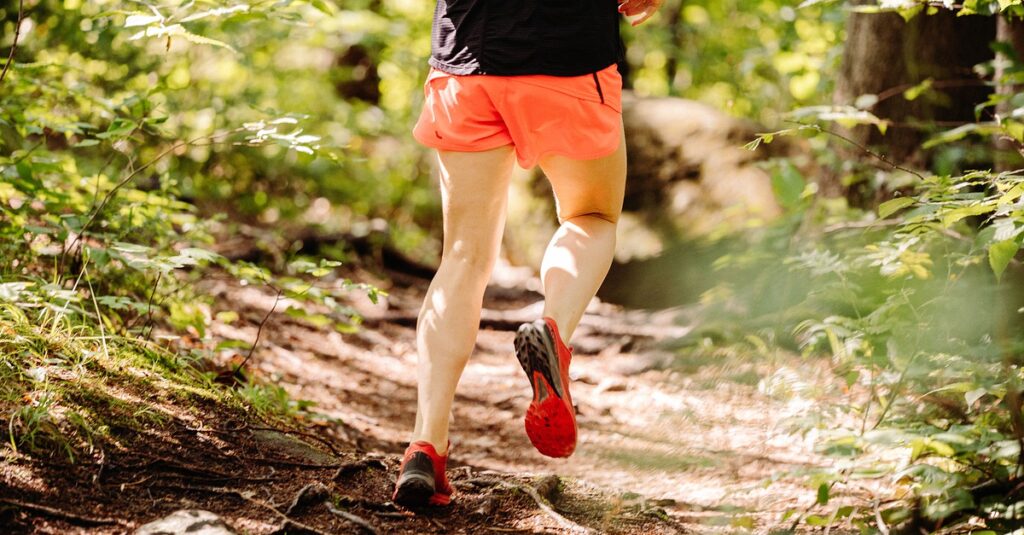

Running may help with scuba diving, but it’s not the most recommended workout. The cardiovascular benefits you receive from running are better found in mild exercises such as cycling or swimming.
Keep reading as we explore the effects of running for scuba diving and when it might be most effective. We will also look at how scuba diving demands fitness and what exercises provide the greatest benefits.
The True Story Book of Freediving Champion Audrey Mestre and the Story of Her Death
View on Amazon: The Last Attempt (Opens new tab)


Top rated read
Is Running Good for Scuba Diving?
Running is good for scuba diving, but you need to be mindful of when you go on runs and your running routine.
Running is helpful in boosting your cardiovascular health. This helps while diving by:
- Decreasing strain
- Allowing you to conserve air
- Preventing nitrogen buildup
- Helping your body degass properly
It also reduces strain of your respiratory system outside the dive environment as you carry heavy items. Cardiovascular exercises help you improve your ability to absorb and use oxygen while dispelling nitrogen more efficiently.
The issue with running is that it puts more strain on your joints and tendons. A run may be strenuous enough to increase your risk of decompression illness, and milder exercise like swimming and cycling can provide similar cardiovascular benefits without the harmful effects.
The Best Running Routine for Scuba Diving
You may want to hold onto a running routine for a number of reasons. Many people like running, and it’s incredibly accessible.
If you’re planning on diving soon after your run or you’re looking for a routine that best benefits diving, aim for something that is short and interval-based. This may look like:
- 5 minute warm up (60 percent capacity or less)
- 1 minute sprint (close to 100 percent capacity)
- 2 minute slight jog
You can repeat this 5 or 6 times before a 5 minute cool down at 50 percent.
Choosing the shorter routine with bursts of intensity over a long, slow run helps you improve cardiovascular health while limiting an increase in micronuclei activity associated with decompression illness.
Can I Run Before Diving?
You can run before diving, but you need to be careful with your timing. This is more difficult with frequent dives, in which you need to create a consistent schedule to limit the harmful effects.
Most research concludes that you should not exercise in the 4 to 6 hour window before or after your dive. This number was once 24 hours, but this set an impractical standard for staying fit while diving.
Do your best to avoid heavy straining of your joints and muscles, as well as high cadence of your limbs. Both are possible while running, but the right routine can minimize the risks.
Allowing ample time between your workout and your dive time limits micronuclei activity believed to encourage bubble formation. The time frame also allows any activity that occurs the chance to settle down, improving your dive experience and limiting any harmful effects.
Do You Need to be Fit to Scuba?
You need to be fit to scuba, but this may look different than what you normally expect. If you’re focusing on training for scuba diving, the approach is much different than strength training routines and targets different areas.
Scuba diving benefits from lean muscle mass, and you should improve your overall fitness for optimal rewards. You should aim for a level of fitness that:
- Allows you to carry all your gear easily, both in and out of the water, wet and dry
- Improves your ability to breathe underwater and using diving gear
- Includes the energy needed for your dive
While you don’t need to commit to a daily routine for a single instance of recreational diving, you should have a good baseline of fitness to get the most out of your dive.
What Exercises are Good for Scuba Diving?
You can break up exercises that are good for scuba diving into:
- Stretching and breathing
- Muscular fitness
- Cardiovascular fitness
Incorporating all three areas gives you a well-rounded approach to fitness for diving.
Stretches and Breathing
Learning how to properly stretch helps by reducing chance of injury and allowing you more effective use of your muscles. When you pair stretching with breathing exercises, you increase mindfulness that helps you remain calm in an emergency situation.
Yoga is a great tool at helping you connect your mind and body while focusing on your breathing. It helps you learn to focus while also boosting flexibility and balance. Normal practice can help you use oxygen more efficiently, and you’re more likely to maintain composure in an intense situation underwater.
Muscular Fitness
While you shouldn’t be bulking for a dive, you should aim to build lean muscle to help you handle gear and the intensity of a dive. You should target your whole body, including shoulders, back, core, legs, and arms.
Getting in the gym can help, but you can use your own body for resistance while performing exercises such as:
- Lunges
- Squats
- Calf raises
- Leg extensions
- Hamstring curls
- Planking
- Crunches
- Flutter kicks
- Lateral pull downs (with resistance band)
- Shoulder presses (with resistance band)
- Bicep curls
In many cases, your diving equipment provides effective weight to increase the difficulty of your training.
Cardiovascular Fitness
Cardiovascular exercises benefit your heart and lungs, allowing you better oxygen transfer and reducing the risks of diving.
While running is a great way to improve cardiovascular health, diving benefits mostly from low-intensity activities like cycling or swimming.
Both of these exercises provide additional benefits, such as the effects of pedaling on finning and the improvement of swimming overall.
You can also look into HIIT classes or routines. The high-intensity interval training is more effective at improving cardiovascular health while limiting harmful effects.
References
https://www.divein.com/diving/diving-fitness-traning-for-scuba-diving/
https://scubaboard.com/community/threads/running-and-scuba.408908/
https://www.dansa.org/blog/2017/08/25/physical-exercise-before-during-after-a-dive
